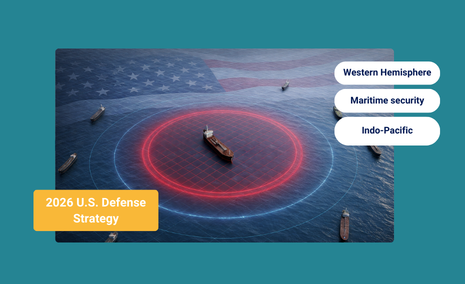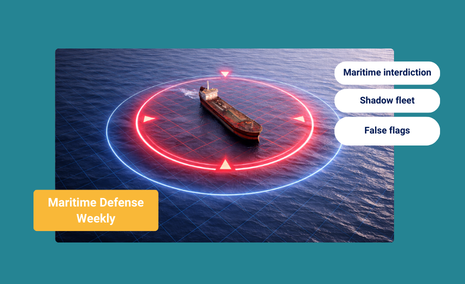
Flag of Convenience
What is a Flag of Convenience?
International law requires that merchant ships are registered in a host country. Registration gives the ship the right to fly a civil ensign, more commonly known as a country’s flag. The ship operates under the laws of its flag, and its host country is required to inspect the ship periodically.
A flag of convenience refers to a situation where the ship is registered in a different country than the one where the ship’s owner resides or holds citizenship (this is often an “open registry,” see below).

Why Would a Ship Use a Flag of Convenience?
There are a number of reasons why shipowners might prefer to register their vessel in another country. These reasons include:
- Avoiding strict regulations that may exist in a shipowner’s home country
- Getting around strict safety standards that are required by a shipowner’s home country
- Reducing operating costs
- Avoiding high tax rates
- Bypassing laws that protect ship workers’ wages and working conditions
What is the Difference Between an Open Registry and a Flag of Convenience?
A registry that does not have nationality or residency requirements is called an “open registry.” Shipowners can register their vessels in these countries and follow the laws of the registry. Flag of convenience refers to the flag of the open registry country that is being flown by the shipowner.

Which Countries Have Open Registries?
There are a number of countries functioning as open registries. Panama is one of the most popular, as it offers online registration, the ability to employ low-cost labor, and no income tax to foreign owners.
According to the International Transport Workers Federation (ITF), there are over 40 additional countries that offer open registries. Here is the flag of conveniences country list:
- Antigua and Barbuda
- Bahamas
- Barbados
- Belize
- Bermuda (UK)
- Bolivia
- Cambodia
- Cameroon
- Cayman Islands
- Comoros
- Cook Islands
- Curacao
- Cyprus
- Equatorial Guinea
- Faroe Islands (FAS)
- French International Ship Register (FIS)
- German International Ship Register (GIS)
- Georgia
- Gibraltar (UK)
- Honduras
- Jamaica
- Lebanon
- Liberia
- Malta
- Madeira
- Marshall Islands (USA)
- Mauritius
- Moldova
- Mongolia
- Myanmar
- North Korea
- Palau
- Panama
- Sao Tome and Príncipe
- Sierra Leone
- St Kitts and Nevis
- St Vincent
- Sri Lanka
- Tanzania (Zanzibar)
- Togo
- Tonga
- Vanuatu
Flags of Convenience: Pros and Cons
There are a number of advantages of having an open registry system. Liberia, which has the second-largest open registry in the world, generates 25% of its country’s national income from its registry.
Ship owners can use open registries to control operational costs. Those savings are passed along to consumers, who are able to buy goods at lower prices. Flags of convenience can also offer political advantages under certain circumstances.
Despite the benefits of the system to countries with open registries and ship owners, there are a number of concerns stemming from the system. Some open registries allow shipowners to remain legally anonymous. This makes it difficult to take civil or criminal legal action against shipowners.
The ITF has been fighting against open registries for years. Ships flying flags of convenience are known for paying very low wages, providing poor working conditions, serving inadequate food and contaminated drinking water, and having abysmal working conditions.
Flags of convenience are also used to hide criminal activities. Smugglers take advantage of low oversight to traffic drugs, facilitate human trafficking, and engage in illegal, unreported, and unregulated (IUU) fishing. This makes it more difficult for organizations to understand the true risk of vessels flying flags of convenience.
History of Flags of Convenience
The term “flag of convenience” was coined in the 1950s. However, the practice of raising another country’s flag goes back hundreds of years. Shipowners would use different flags to secure safe passage near pirates and avoid military conflicts.
Panama was the first country to have an open registry. Facing tightening shipping laws in the United States, many ship owners began registering their ships there. During the early stages of WWII, the United States government sanctioned transferring ship registration to Panama, so that the government could deliver goods to Britain while officially remaining neutral.
In 1948, former U.S. Secretary of State Edward Stettinius worked with the Liberian government to open its registry. At the time, Panama’s registry was losing popularity in the United States. By 1968, Liberia had surpassed the United Kingdom as the world’s largest registrar.
As of December 2021, the top three ship registries in the world were:
- Panama – 8,558 registered vessels
- Marshall Islands – 5,158 registered vessels (Feb 2022)
- Liberia – 5,000+ registered vessels
Interesting Flag of Convenience Facts
It Began with Alcohol
The first ships to fly flags of convenience in the modern era through an open registry were based in the United States. During prohibition in the 1920s, ship owners wanted to serve alcohol to their passengers. They registered their ships in Panama, believed to be the world’s first open registry.
Liberian Registry Operates out of the United States
When Edward Stettinius opened the Liberian registry as a joint venture, it was structured so that 25% of revenue would go to the Liberian government, 10% would go to Liberian social programs, and the remainder went to Stettinius’ corporation.
After its civil war, the Liberian registry had a new contract signed between warlord Charles Taylor and the Liberian International Ship and Corporate Registry (LISCR). The registry is currently operated out of Virginia, United States.










